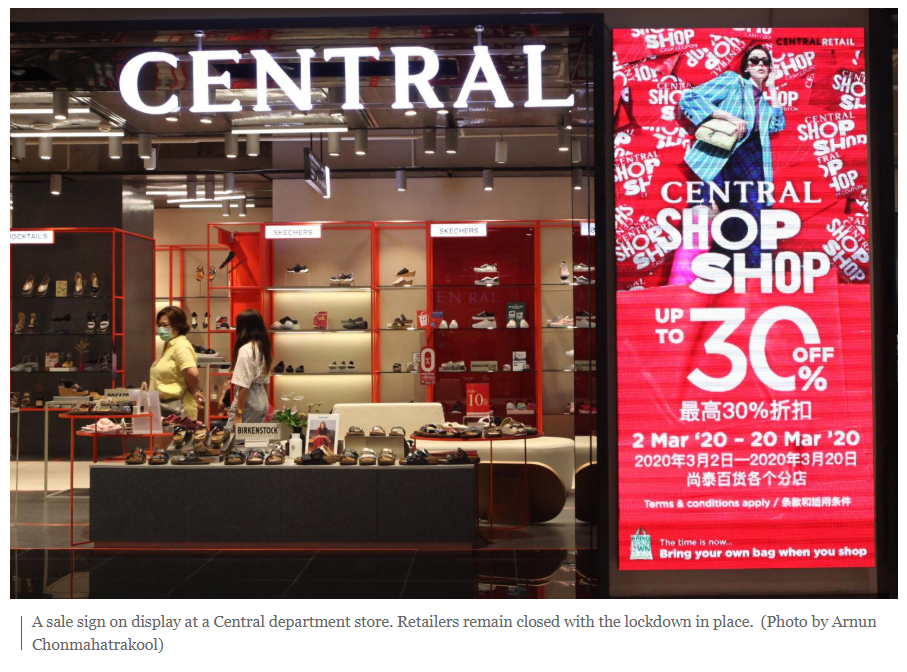Thailand: Retail impact and opportunity
The global Covid-19 pandemic has led to the greatest impact on trading conditions around the world in recent memory. More than 3.6 million people have been infected globally, with nearly 3,000 having tested positive in Thailand.
Since March 22, as a measure of social distancing, all shopping centres and retail outlets were ordered to close and are not expected to open until mid-May at the earliest. Supermarkets, pharmacies and banks have been allowed to continue operating, as have restaurants, though only for takeaway and delivery.
As of this week, restaurants in Bangkok were allowed to resume offering dine-in services, but with strict protections and distancing measures. Some other businesses including hair salons and IT/telecom shops have also been allowed to reopen.
But thousands of other retailers remain closed and face a crisis as they have fixed overheads and no sales revenue from which to pay. In response, some landlords have begun to offer up to 100% rental relief to closed tenants and as much as 50% for those that have been able to continue trading.
Though only a handful of landlords have been offering such generous relief, it is anticipated that if the lockdown were to be extended, a greater number of landlords would begin to offer these levels in order to relieve some of their tenants’ burden.
The pandemic has been devastating for the country’s strategically vital tourism industry, with international arrivals in January and February down 20% year-on-year, followed by a 76% drop in March. With a full inbound flight ban imposed by the Civil Aviation Authority of Thailand through April and May, the news will only get worse.
Bangkok’s luxury retailers will struggle to meet their pre-crisis sales revenues unless the number of international tourists reach their pre-crisis highs, as international tourists are known as a large source of sales for luxury goods in the capital.
With the lockdown in place households have begun to rely on e-commerce to a greater degree to purchase their necessities. The National Broadcasting and Telecommunications Commission reports that online purchases increased by 80% in February from the previous month, which was mainly driven by higher demand for groceries.
This dramatic change in consumer behaviour will likely increase the long-term usage of e-commerce as shoppers will have increased familiarity with the sales model and its convenience, such as home delivery.
In response, we expect to see retailers expediting their plans for e-commerce to minimise their losses and remain competitive in an industry that may be suffering from varying levels of social distancing for an uncertain amount of time.
Looking ahead, we anticipate that landlords will become increasingly concerned over the long-term implications of losing tenants that may cease trading or enter bankruptcy, which would potentially lead to higher rates of vacancy. As the risk increases, landlords will likely become more generous with their relief to share the burden of their tenants.
Retail revenue will likely return to pre-crisis levels only once international travel has resumed and tourism is close to the record set in 2019 of 39.8 million arrivals.
Regardless of when the Covid-19 pandemic ends, Bangkok’s retail environment will experience a prolonged struggle. Landlords and tenants should continue to cooperate and share the burden of the crisis to minimise long-term damage to the industry.
Source: https://www.bangkokpost.com/business/1914588/retail-impact-and-opportunity


 English
English




